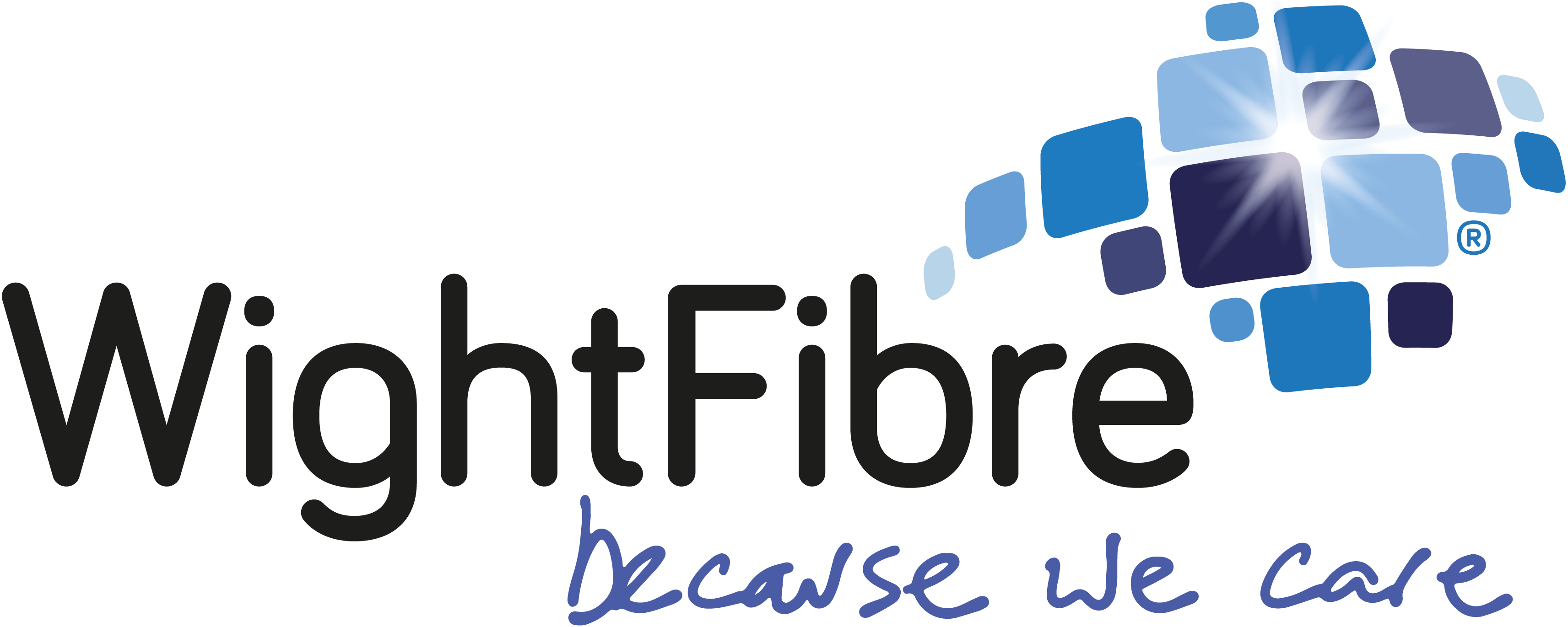Top Tips – Citizens Adviser Scams Awareness Fortnight
It is safe to say that almost everyone has some sort of presence online now. Whether it’s every day for work or on the weekends for browsing eBay and Amazon or doing the weekly food shop, most Islanders now use the internet at least several times a week.
How you access these services varies – it may be on a mobile device and at other times on your computer or laptop, so we thought that we should focus on your personal security online and how you can take easy steps to stay safe, inspired by Citizens Adviser Scams Awareness Fortnight which is currently running from the 15-28 June.
Paul Savill CEO of Citizens Advice IW said
“It’s very easy to fall prey to scammers. They used to target the elderly but now they are becoming more sophisticated and targeting younger victims. The aim of Scams Fortnight is to make people more aware of scams, how to avoid them and what to do if they think they have been scammed. Our theme this year focuses on Covid 19 related scams.”
With recent events, Sally Ash of Trading Standards explains how scammers have used the current climate and adapted their approaches to hit Islanders whilst they are especially vulnerable:
“We have seen a surge of Covid-19 related scams, including texts that tell you
- To claim a Coronavirus payment by clicking on a link
- That you have been recorded leaving your property 3 times in one day and fined – click on the link to pay it.
- That you have been in contact with somebody who has tested positive and telling you to click on a link – this is particularly worrying as over 52,000 Islanders are currently trialling the NHS Covid-19 App so may think that this is a genuine message. Recently we have reports of telephone calls saying the same and offering a test for £500. Please do not give your personal bank details. Tests requested via the App are in fact free.
Residents are also reporting unsolicited phone calls offering to sell face masks for £29.00. These are SCAMS. These criminals are preying on all of our vulnerabilities at the minute and trying to scare us into parting with cash or bank details.
One to really watch out for at the minute is the Amazon Prime telephone scam – we have had reports over the past couple of months from residents who have lost money to this sophisticated and believable scam. Remember Amazon will NEVER contact you like this.”
Here are Wightfibre’s top 5 security tips for keeping your data safe online:
1 Use Unique Passwords for Every Login
The 2018 Global Security Password report found that over 65% of people use the same username and password for multiple accounts and over 50% use the same for work and personal accounts. This means that if anyone manages to gain access to one of your logins, they can then duplicate this across all of your other favourite online portals. It may seem like an obvious tip, but it’s one of the easiest to action and most important to remember; one that many internet users do not observe.
Idea ? Use a password manager. Having a unique and strong password for every account is not a job any human can adhere to very well, but it’s exactly the right job for a computer and that way you only need to remember the password to access the password manager itself. When you start an online session, just log into your password manager and this will take over the role of logging in on all your other sites that you frequent. Several very good password managers are free, and it takes little time to start using one – spend an hour doing your research and you will be glad that you did.
2 Turn on Two-Factor Authentication
Two-factor authentication can be a bit of a faff when you are in a rush, but it will make your accounts that bit more secure. It means you have another layer of security you need to pass as well as having a username and password to get into your accounts. A lot of websites, apps and services use this now, so if the data or personal information in an account is sensitive or valuable, and it offers you two-factor authentication, you should enable it. Gmail, Facebook, Microsoft, Evernote, and Dropbox are a few examples of online services that offer two-factor authentication.
Thought ? An added benefit to this service is that if someone tries to log into your account, and you have two-factor authentication via text message enabled, you will be made aware that someone is trying to log into your account via text message. However – you should never click directly through from text messages just in case they are scams, you should instead visit the website the message came from and log in as usual to see if any unusual activity has been reported.
3 Use Passcodes (Even If They’re Optional)
If you are using your smartphone or tablet and the device or an app offers passcode protection, then you should choose to use it even if it’s optional. Passcodes are your device’s equivalent of a banking pin code, but with the option of extra characters.
Tip ? If you use a numerical pin to unlock your phone then clean your screen several times a week and there is less chance of a perpetrator seeing marks and working out your four digits if you misplace your phone.
Help ? For iOS devices, go to Settings > Passcode and switch off Simple Passcode, which gets rid of the numbers-only PIN and lets you to use the full keyboard to create a much more complex passcode.
4 Clear Your Cache
You should never underestimate the amount of information which is stored in your cache and how much it knows about you! There you will find saved cookies, searches and web history which could all give hackers pointers towards your address, family information and other personal data which leaves you vulnerable.
Tip ? It’s considered best practice to clear your cache at least once a month. This will also free up storage on your device and may improve its performance as well.
Tip ? Cookies are used to target you with advertising which is relevant. These run mostly on 30-days, but if you’re seeing out-dated targeted adverts (i.e you’ve been looking at holidays but no longer want to see idea for locations) then just clear your cookies for a fresh start.
5 Don’t Fall for Click Bait
Part of operating securely online is being able to recognise when something is not quite right. Click bait doesn’t only refer to photos of cuddly cats or adverts claiming the will give you a £100 supermarket voucher for filling in your email, they also come in much more sinister forms such as comprised links in emails, messages or Facebook for example.
Phishing links are scary because they can catch anyone off guard and then instruct your device to download malware. To avoid this, it is best to invest in a trusted highly rated anti-virus software package.
Tip ? It’s that old saying – if it seems too good to be true, then it probably is. If you are not comfortable with something, then contact the provider directly for advice or get in touch with Isle of Wight Citizens advice.
How Wightfibre can help you fight online security threats with Plume
We have recently launched AI Security solution – Plume. Plume filters out suspicious content as your devices connect to the Internet, providing you with real-time threat protection against crypto-mining, ransomware, malware, viruses, botnets, phishing attacks and more. It identifies all your connected devices and continuously monitors them for suspicious activity. If a device is compromised, Plume quarantines the device, preventing the threat from spreading to rest of your connected devices.
Adblocking
Plume blocks the ad content coming from known ad servers, significantly improving your browsing experience.
Existing customer? You can always count on Digi Dan!
We help WightFibre customers to avoid scams through our support line 01982 242424. If in doubt our customers are always welcome to call us and ask for Digi-Dan who is available to support our more vulnerable customers with additional advice and guidance.
For more advice about online security, you can visit the Isle of Wight Citizens Advice website or they also have a dedicated Isle of Wight Scams Awareness Facebook page which was launched by Islander Ian Johnston and is actively posting help and advice as well as local scam alerts throughout Citizens Adviser Scams Awareness Fortnight.
When discussing the Isle of wight Scam Awareness Facebook page, Ian said:
“It’s important to report the scam to someone if you become a victim. The law enforcement services can only take action if they know about the scam. Don’t be embarrassed, no one will judge you. It’s also important to report it even if you don’t become a victim. This will stop others being scammed.”
 What is Advanced IoT Protection? Watch this video to learn more
What is Advanced IoT Protection? Watch this video to learn more





